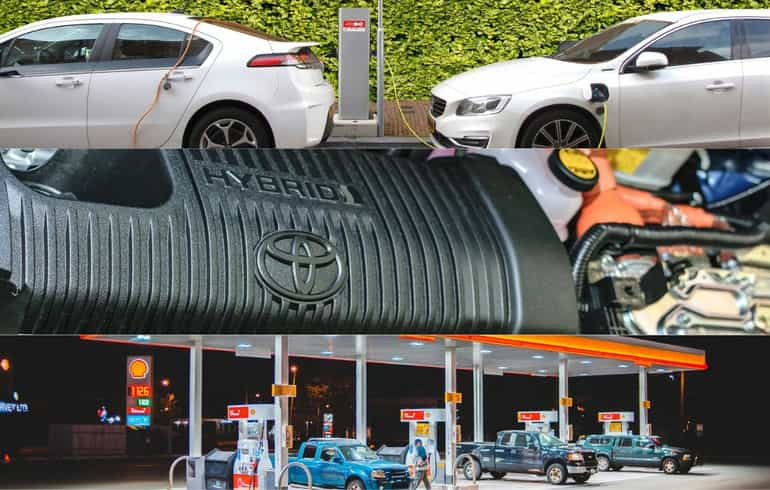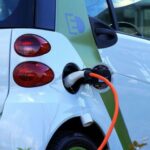Which is superior: electric, hybrid, or petrol cars?
This would not have been a question a little over ten years ago. Nowadays, nearly all automakers have invested in alternative fuels, and hybrid and electric vehicles are becoming increasingly popular as they offer numerous advantages over traditional gasoline-powered cars. However, it is worth noting that this modern technology may not suit everyone’s needs or preferences. To assist you in selecting the best option, we examine the advantages and disadvantages of electric, hybrid, and gasoline vehicles.
Electric automobiles are cars that only use electricity to drive an electric motor that is powered by batteries. They have no emissions, making them a greener choice than gasoline-powered vehicles. With improvements in battery technology, they may be recharged at home or at public charging stations, and their range has been growing.
Hybrid vehicles pair a gasoline or diesel engine with an electric motor. They use less fuel than gasoline-powered cars, and their electric powertrain lowers pollution. They don’t require charging because the gasoline engine powers the electric motor, and depending on driving conditions, they may switch between using electric and gasoline power.
Petrol automobiles, also known as gasoline cars, are propelled by internal combustion engines that harness the power of gasoline. The majority of vehicles on the road are of this type, and they are often less expensive than hybrid or electric vehicles. Yet, the emissions they release have the potential to damage the environment and worsen air pollution.
Electric, Hybrid and Petrol Cars, Which Is Better?
Determining which type of car is “better” depends on the individual’s needs and priorities.
Those who value environmental sustainability should choose electric cars because they have no emissions and can be charged with renewable energy. As battery technology advances, they are also becoming more inexpensive and have a greater range.
For people who wish to lessen their carbon impact but still want the ease of not having to charge their car, hybrid vehicles are an excellent choice. Compared to gasoline-powered vehicles, they offer superior fuel efficiency, and the electric motor can assist cut pollutants.
For individuals who value economy and convenience, gasoline-powered vehicles remain a viable option. They are simple to refuel because they are generally available and there are a lot of gas stations. They do, however, release emissions that can damage the environment and worsen air pollution.
The “best” choice ultimately comes down to your priorities and requirements.
1. Electric Cars
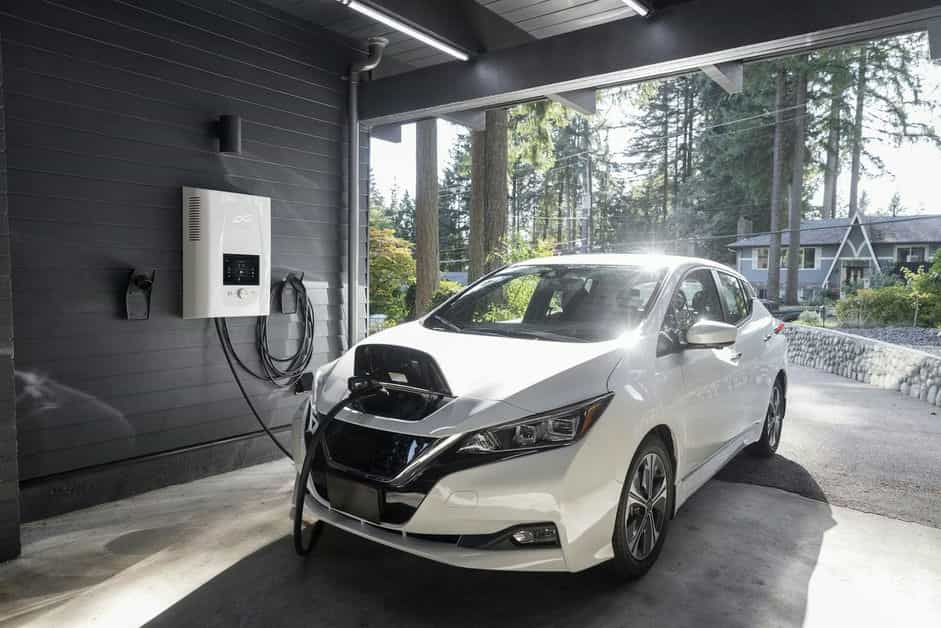
Electric automobiles or electric vehicles (EVs) operate using electric motors and rechargeable batteries, making them a cleaner and more environmentally friendly mode of transportation compared to petrol or diesel vehicles. EVs play a crucial role in combating climate change by emitting fewer greenhouse gases. They also offer a better driving experience due to their smoother and quieter operation compared to conventional vehicles. Although initially considered a niche industry, the increasing installation of charging stations and advancing technology have made electric vehicles more common.
One of the main advantages of electric vehicles is their low environmental impact. Electric cars emit significantly fewer greenhouse gases than conventional cars, as they do not rely on fossil fuels for power. When charged with clean energy sources like solar or wind power, electric cars can even be emissions-free, further reducing their impact on the environment. In contrast, conventional cars contribute significantly to greenhouse gas emissions due to their reliance on fossil fuels. Additionally, electric vehicles generate less noise pollution, which is particularly beneficial in urban areas. Moreover, electric automobiles are more efficient at converting energy into motion than gasoline-powered vehicles, resulting in cheaper fuel expenses and lower maintenance costs over the course of the vehicle’s life.
Advantages of Electric Cars
- Zero emissions: Electric cars produce zero emissions, making them more environmentally friendly than petrol cars.
- Reduced running costs: Because electric vehicles run on electricity rather than gasoline, they are less expensive to operate than gasoline-powered vehicles. In general, electricity is less expensive than gasoline, and electric vehicles require less upkeep.
- Improved performance: Electric vehicles can accelerate rapidly and smoothly since they have instant torque. They are sturdy and simple to handle because they also have a lower centre of gravity.
- Quieter: Compared to gasoline-powered vehicles, electric automobiles are significantly quieter, providing a more relaxing and tranquil driving environment.
- Government incentives: Many governments provide tax credits or rebates as well as other incentives to encourage the purchase of electric vehicles, which can lower the cost of these vehicles.
Disadvantages of Electric Cars
- Shorter range: Compared to fuel vehicles, electric vehicles often have a shorter range, demanding more frequent recharges.
- Longer charging times: Recharging an electric vehicle takes longer than refuelling a gasoline vehicle, which can be inconvenient on extended road journeys.
- Inadequate infrastructure for charging: Compared to gas stations, charging stations for electric cars are less common, which might make it challenging to locate one when needed.
- Higher upfront costs: Electric cars are generally more expensive to purchase upfront than petrol cars, although this is changing as battery technology improves and economies of scale are achieved.
2. Hybrid Cars
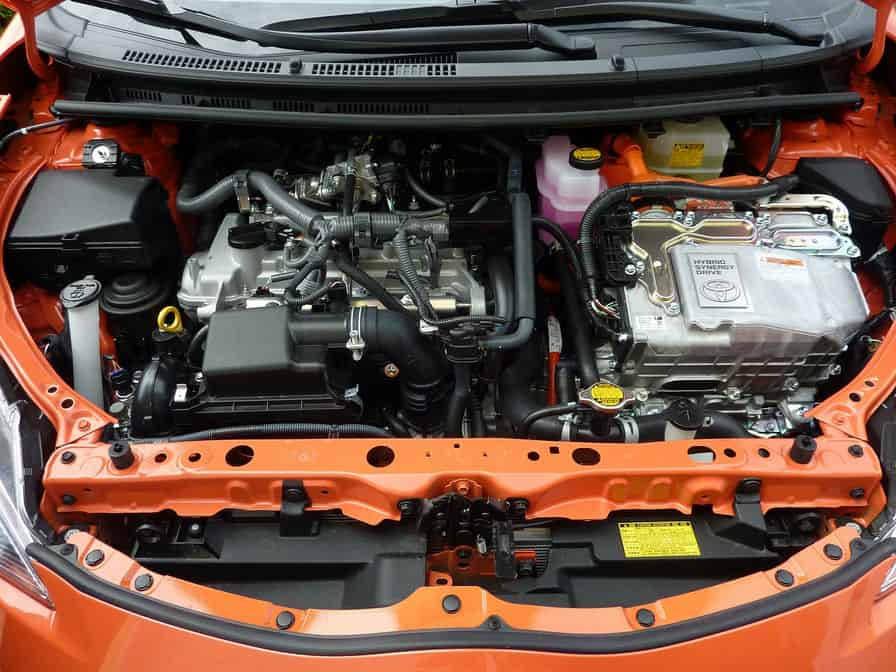
Vehicles that combine two or more power sources to create propulsion are known as hybrid vehicles. Hybrid vehicles typically combine a gasoline or diesel engine with an electric motor and battery pack. By assisting the gasoline or diesel engine, the electric motor lowers pollution and fuel consumption. The gasoline or diesel engine can also be used to charge the battery pack.
Series and parallel hybrids are the two primary categories of hybrid vehicles. A series hybrid vehicle utilizes the gasoline or diesel engine solely for the purpose of recharging the battery pack, which in turn powers the electric motor providing all propulsion. On the other hand, a parallel hybrid vehicle utilizes both an electric motor and a gasoline or diesel engine for propulsion. The electric motor is mainly responsible for low-speed driving and acceleration, while the gasoline or diesel engine is used more frequently at higher speeds.
However, hybrid cars are also frequently more expensive than conventional cars, and replacing their batteries can be costly. Furthermore, even though hybrid automobiles are more fuel-efficient than conventional cars, they still need fossil fuels to run. As a result, they fall short of offering a comprehensive solution for lowering greenhouse gas emissions and other effects of transportation on the environment.
Advantages of Hybrid Cars
- Improved fuel economy: Because hybrid vehicles use both an electric motor and a gasoline engine, they have a higher fuel economy than conventional vehicles. According to the driving conditions, they can switch between using electric power and gasoline power, resulting in less fuel use.
- Reduced emissions: Due to the electric motor’s role in lowering the quantity of gasoline required to power the vehicle, hybrid automobiles emit fewer emissions than equivalent petrol vehicles. This indicates that those who want to lessen their carbon footprint should consider hybrid vehicles.
- Regenerative braking: is a technique used by hybrid vehicles to recover energy that is typically wasted when braking. The electric motor is powered by this energy, which is subsequently stored in the car’s battery and increases fuel efficiency.
- Improved performance: Hybrid vehicles provide instant torque, allowing for swift and smooth acceleration. They are sturdy and simple to handle because they also have a lower centre of gravity.
- Government incentives: Many governments provide tax credits or refunds as well as other incentives to encourage the purchase of hybrid vehicles, which can lower the cost of these vehicles.
Disadvantages of Hybrid Cars
- Increased up-front costs: Compared to gasoline-powered vehicles, hybrids are often more expensive to buy upfront.
- Complexity: Compared to gasoline-powered vehicles, hybrids have more sophisticated systems, which might increase the cost of maintenance and repairs.
- Restricted range: Hybrid vehicles often have a lower range than gasoline-powered vehicles and still need gasoline to run. As a result, they require refuelling more frequently than electric vehicles.
- Restricted infrastructure for charging: Although hybrid vehicles don’t need charging stations like electric vehicles do, they still need access to gas stations, which can be scarce in some places.
3. Petrol Cars
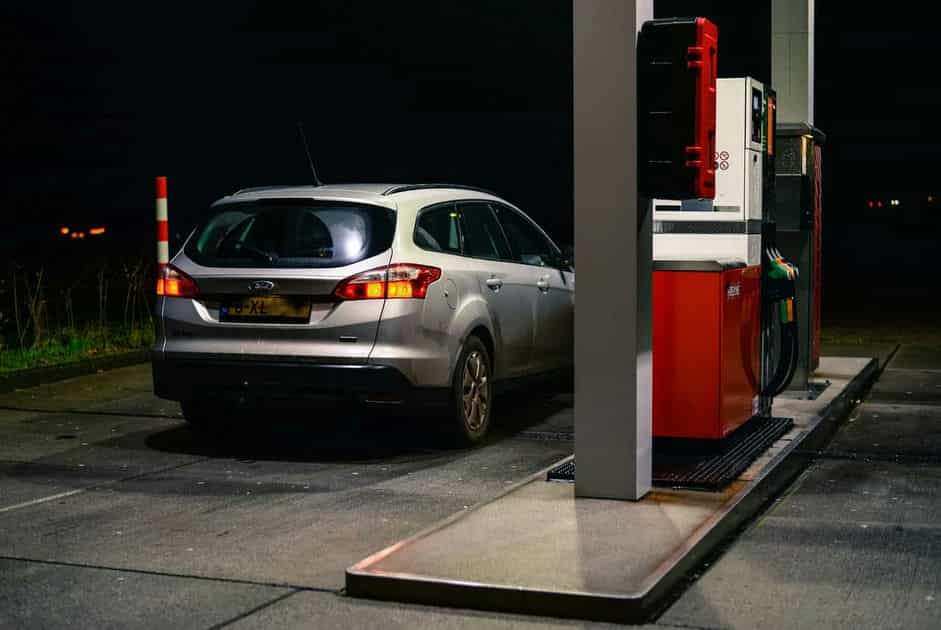
Gasoline cars, also known as petrol cars, rely on gasoline to fuel an internal combustion engine that propels the vehicle. The engine ignites the fuel in a combustion chamber using a spark plug. This ignition generates an explosion that moves a piston and turns a crankshaft to power the wheels.
While petrol cars have advantages such as accessibility and affordability, they have higher operating costs compared to electric and hybrid cars due to the expensive price of petrol and increased maintenance requirements. Gasoline vehicles are ideal for long-distance travel because they can be quickly and easily refuelled at gas stations.
Petrol vehicles do, however, also have significant drawbacks. In contrast to hybrid or electric vehicles, petrol cars often have lower fuel efficiency, resulting in increased emissions of greenhouse gases and other pollutants. Additionally, they require regular maintenance, including tune-ups and oil changes, which can become costly over time. As gasoline engines experience more wear and tear than hybrid or electric engines, petrol cars typically have a shorter lifespan.
Generally, drivers who value economy and convenience over environmental considerations continue to favour gasoline-powered vehicles. But, as worries about air pollution and climate change spread, more individuals are taking into account substitutes like electric or hybrid vehicles.
Advantages of Petrol Cars
- Availability: Petrol cars are widely available, and petrol stations are abundant, making them easy to refuel.
- Reduced initial costs: Compared to electric and hybrid vehicles, gasoline-powered vehicles are typically less expensive to purchase at first.
- Simplicity: Compared to electric and hybrid vehicles, gasoline-powered vehicles have simpler systems, which can result in lower maintenance and repair costs.
Disadvantages of Petrol Cars
- Increased emissions: Emissions from gasoline-powered vehicles can damage the environment and add to air pollution.
- Higher operating costs: Petrol cars cost more to operate than electric and hybrid cars due to the higher price of petrol and increased maintenance requirements.
- Reduced fuel efficiency: Compared to electric and hybrid vehicles, gasoline-powered vehicles use more fuel to cover the same distance.
- Noisier: Petrol automobiles are noisier than electric and hybrid vehicles, which might be a drawback for individuals who value a peaceful and comfortable ride.
- Government rules: Government laws are becoming stricter in many nations when it comes to the emissions from gasoline-powered vehicles, which may reduce their appeal to purchasers in the future.
Conclusion
Finally, there are many other kinds of automobiles on the market today, including gasoline-powered, electric, and hybrid vehicles. Choices are based on personal needs and priorities, and each style has advantages and cons of its own. Electric vehicles offer several advantages over gasoline vehicles, including lower operating costs, better performance, and a smaller carbon footprint. Electric vehicles have limited range and charging infrastructure availability can make long-distance travel more challenging.
Hybrid vehicles are more fuel-efficient and eco-friendly despite higher prices, while petrol cars have higher operational expenses and environmental concerns. Electric and hybrid cars are gaining popularity due to advancing technology and stricter regulations.




